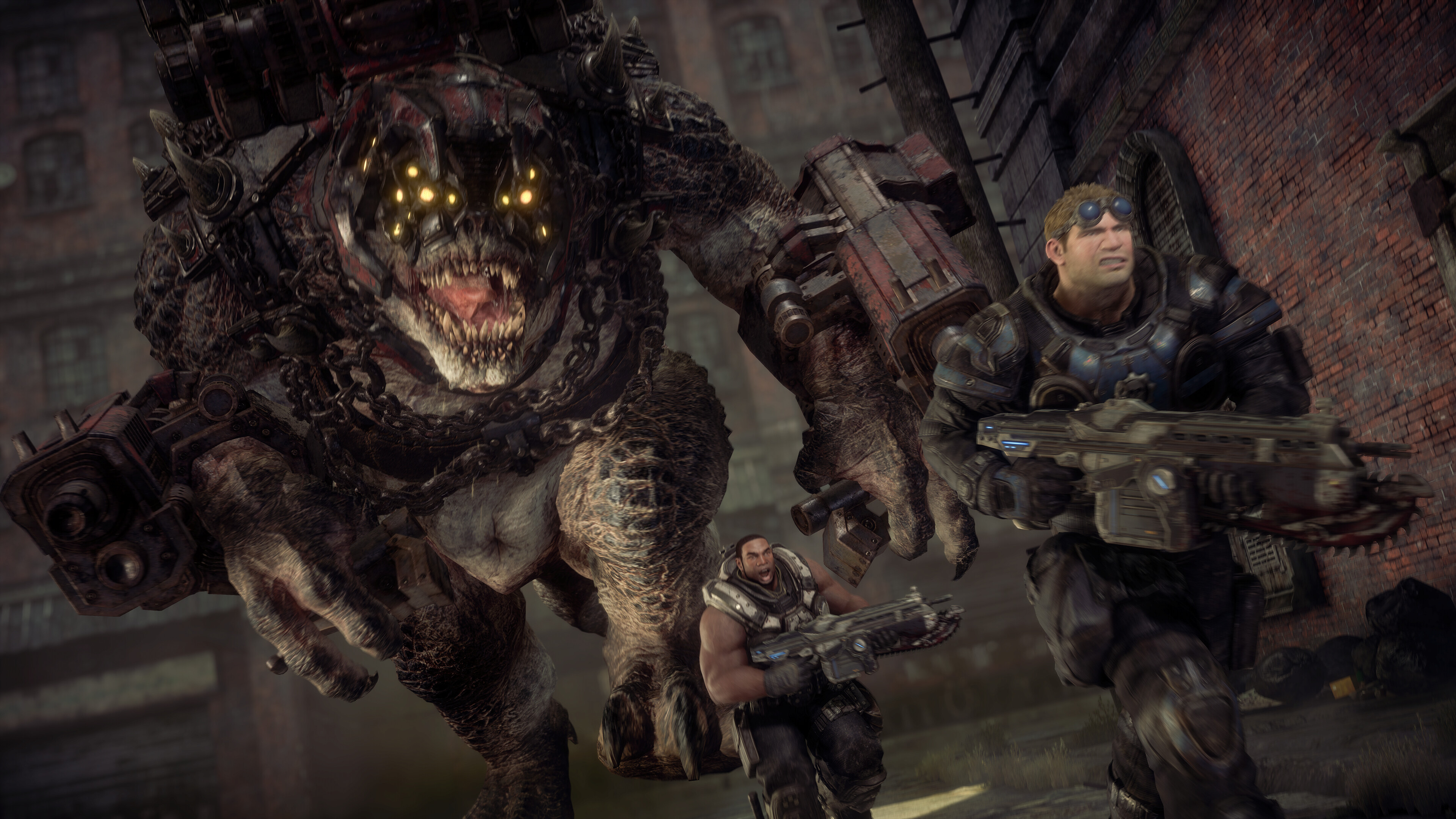Comparing Xbox Game Pass to Spotify or Netflix simply doesn't work
Xbox Game Pass is different.
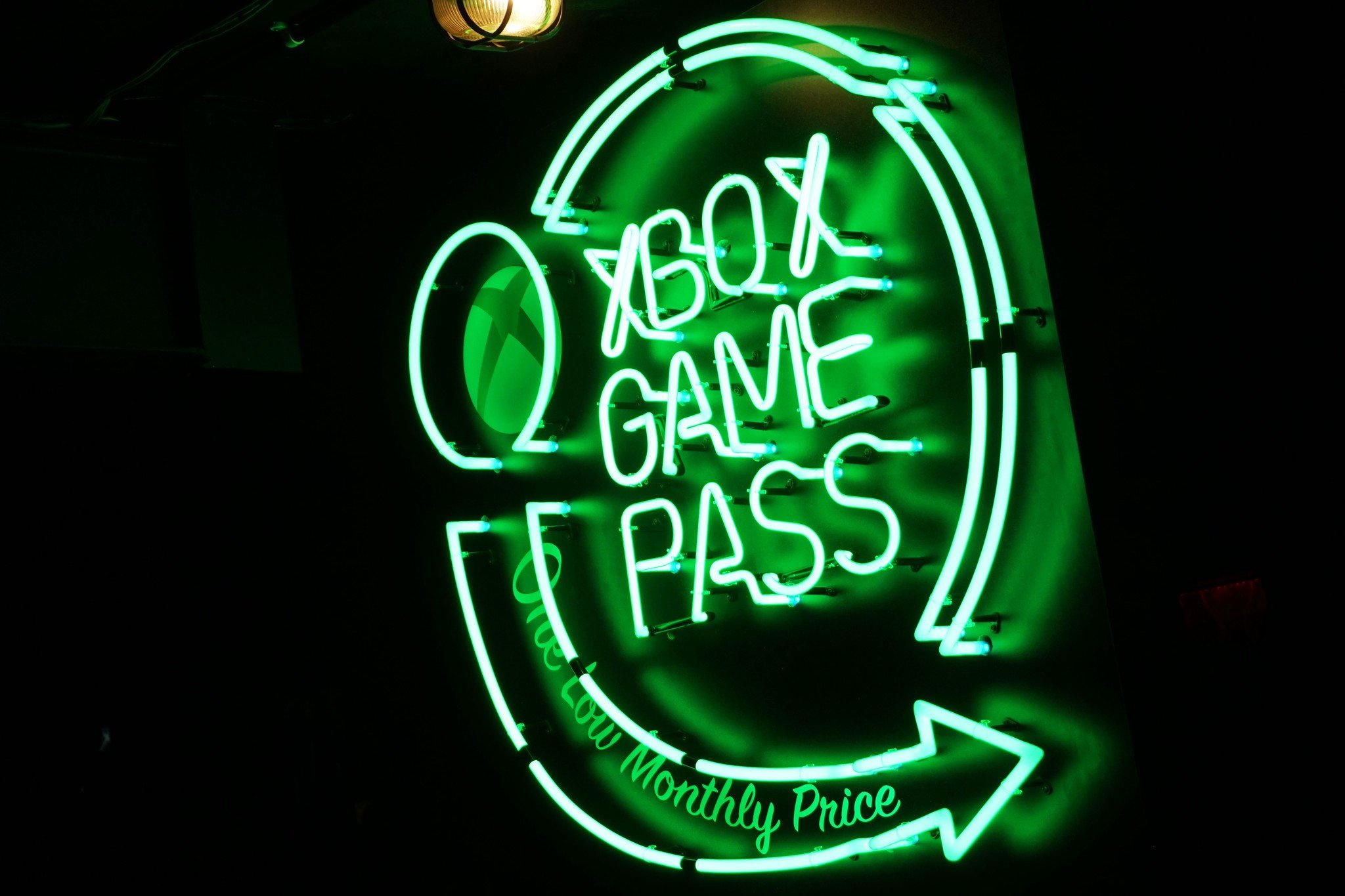
The UK's big pandemic lockdown finally lifted in England this past week, allowing me to see an old friend for the first time in years. A busy chap with three kids, my pal doesn't get a huge amount of time behind the joysticks anymore, but he does jump on for an occasional run at FIFA and Call of Duty. I asked if he had Xbox Game Pass, given that EA Play is now included as part of the Xbox Game Pass Ultimate subscription. Despite being an Xbox player, I was surprised when he said that he didn't even know what Xbox Game Pass is.
Indeed, the world still doesn't know about Xbox Game Pass, despite some pretty hefty marketing from Microsoft. To explain it simply, I've often fallen back on comparisons to Netflix or Spotify, as a way to very quickly elaborate on its "all you can eat" subscriptive nature. However, some of the discourse on social media uses the comparisons to put down Game Pass, hiding behind a veil of "think of the devs!" while drawing comparisons to how little musicians are paid on Spotify, or how streaming services have slaughtered CDs, DVD, and Bluray sales.
Spotify added a donation button to its service last year, as musicians felt the pinch from live shows being canceled across the world. The Guardian called it a "tacit admission" that Spotify wasn't paying musicians the royalties they deserve. Some think Xbox Game Pass could eventually go the same way, lowering the value of games by dissuading purchases at retail, while they wait for a title to appear on Game Pass. Is this a possible scenario? Is it a comparable situation?
Let's explore the experiment that is Xbox Game Pass, and why at least in 2021, the comparisons to the Netflix and Spotify business models don't really hold up.
Xbox Game Pass has an upsell factor
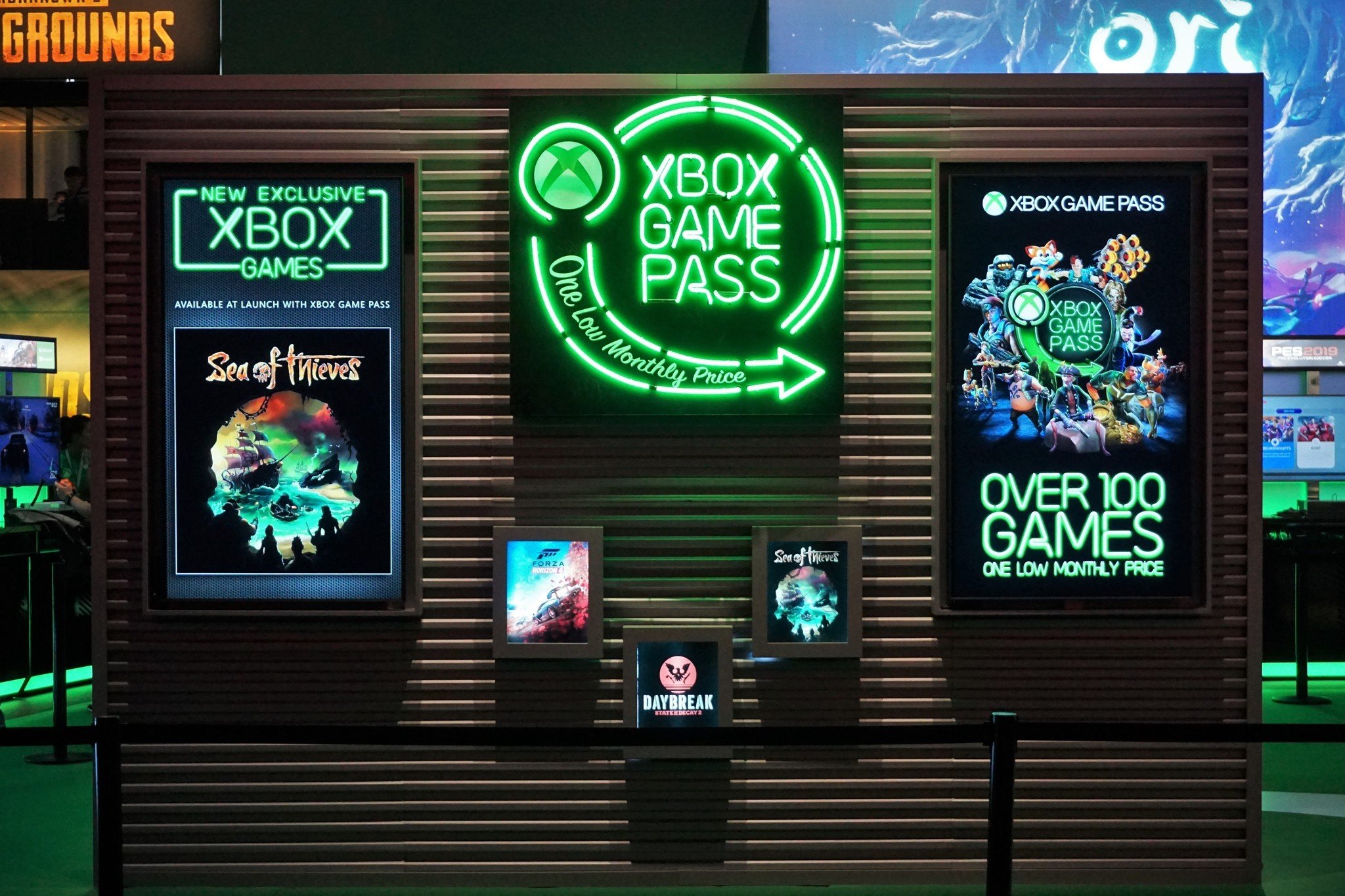
One of the ways people try to discredit Xbox Game Pass and assume that it "doesn't make money" is to point to Netflix, Spotify, and other services that struggle to actually turn a profit. Spotify's losses hit €293 million euros in 2020, while Netflix enjoyed a healthy $2.7 billion dollar net income. Netflix has 204 million subscribers as of writing, and Spotify has 345 million active users, of which 155 million subscribe, with the remainder on a free ad-based model. The last figure we had for Xbox Game Pass was earlier this year, putting the service at 18 million, although I've heard recently that it has crossed the 20 million mark and may well be even further over that by now.
If you enjoy Minecraft Dungeons, chances are you might just buy those DLC packs on top of your Xbox Game Pass sub.
I've seen some commentators without evidence assume Microsoft is paying more than it's earning for titles to hit Xbox Game Pass. Let's assume conservatively that all Xbox Game Pass users are on the $10 dollars per month tier, at 20 million subscribers. That gives Microsoft roughly $200 million per month at least (not including Xbox Game Pass Ultimate) to play around with it.
Unlike Spotify, Microsoft doesn't pay ongoing royalties for downloads. Every contract is different, but I understand that Xbox Game Pass pays out an upfront lump sum to get the game into the service, with additional benefits negotiated on a per-contract basis. Microsoft knows how much it has to spend month over month, giving them a relatively easy spreadsheet to work with when it comes to acquiring content, which forms part of the user acquisition cost, not factoring in marketing.
All the latest news, reviews, and guides for Windows and Xbox diehards.
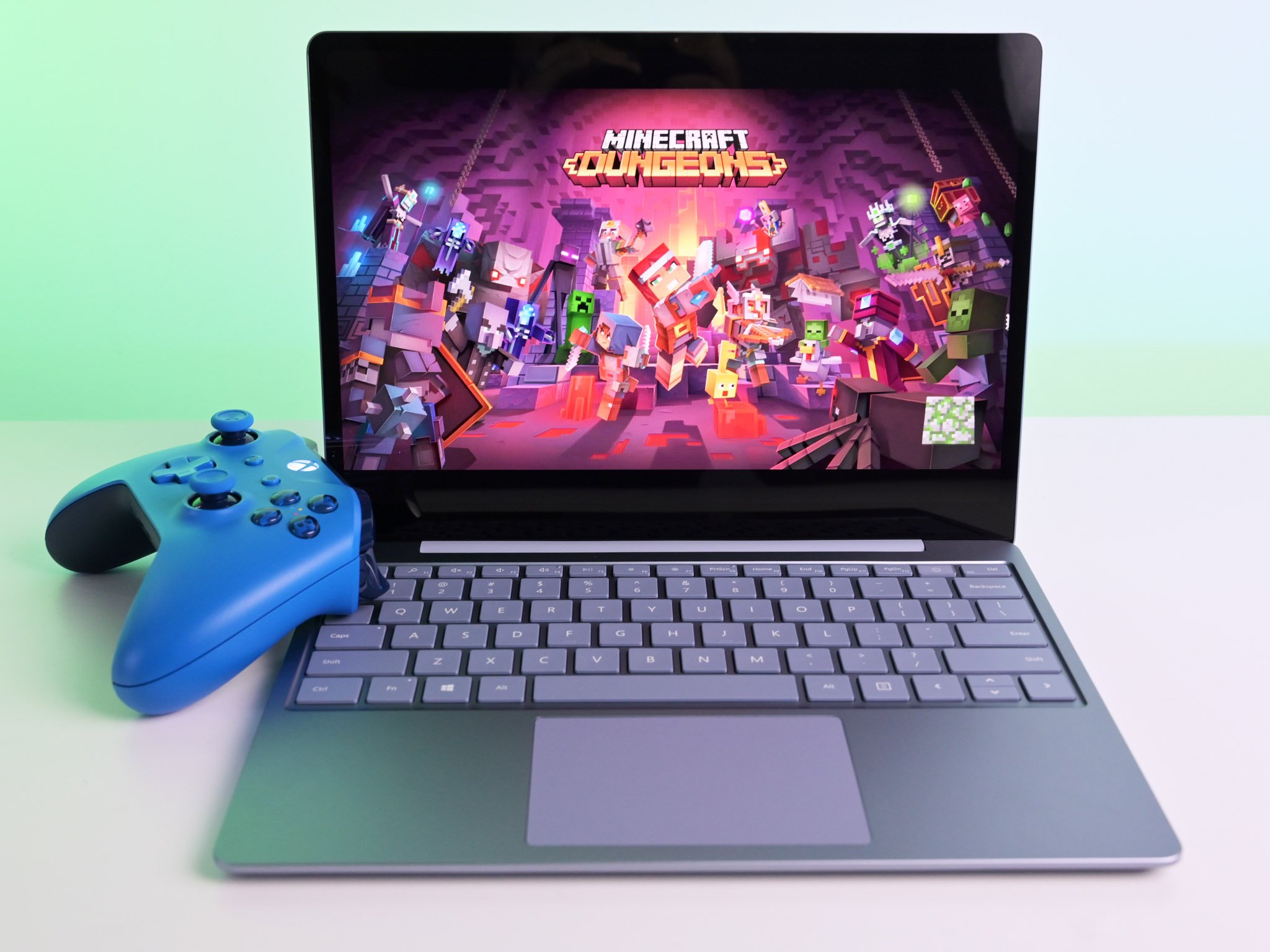
Unlike Netflix and Spotify, Xbox Game Pass also has an upsell component. Although Spotify has started selling merch through the site, in addition to tickets to live gigs and vinyl records and so on, I'd bet money that the vast majority of users never even see this feature. By comparison, Minecraft Dungeons has several relatively cheap DLC packs that aren't included in Xbox Game Pass.
If you enjoy Minecraft Dungeons, chances are you might just buy those DLC packs on top of your Xbox Game Pass sub. Netflix also does sell some content at retail, but generally speaking, the app itself has no upsell features whatsoever. You pay your sub, and that's it. There are no microtransactions, no DLC content, and crucially, no retail sales attached. When you factor in upselling, the amount of cash Microsoft is generating from Xbox Game Pass is likely far higher than the subscription fees alone.
Xbox Game Pass is also more curated
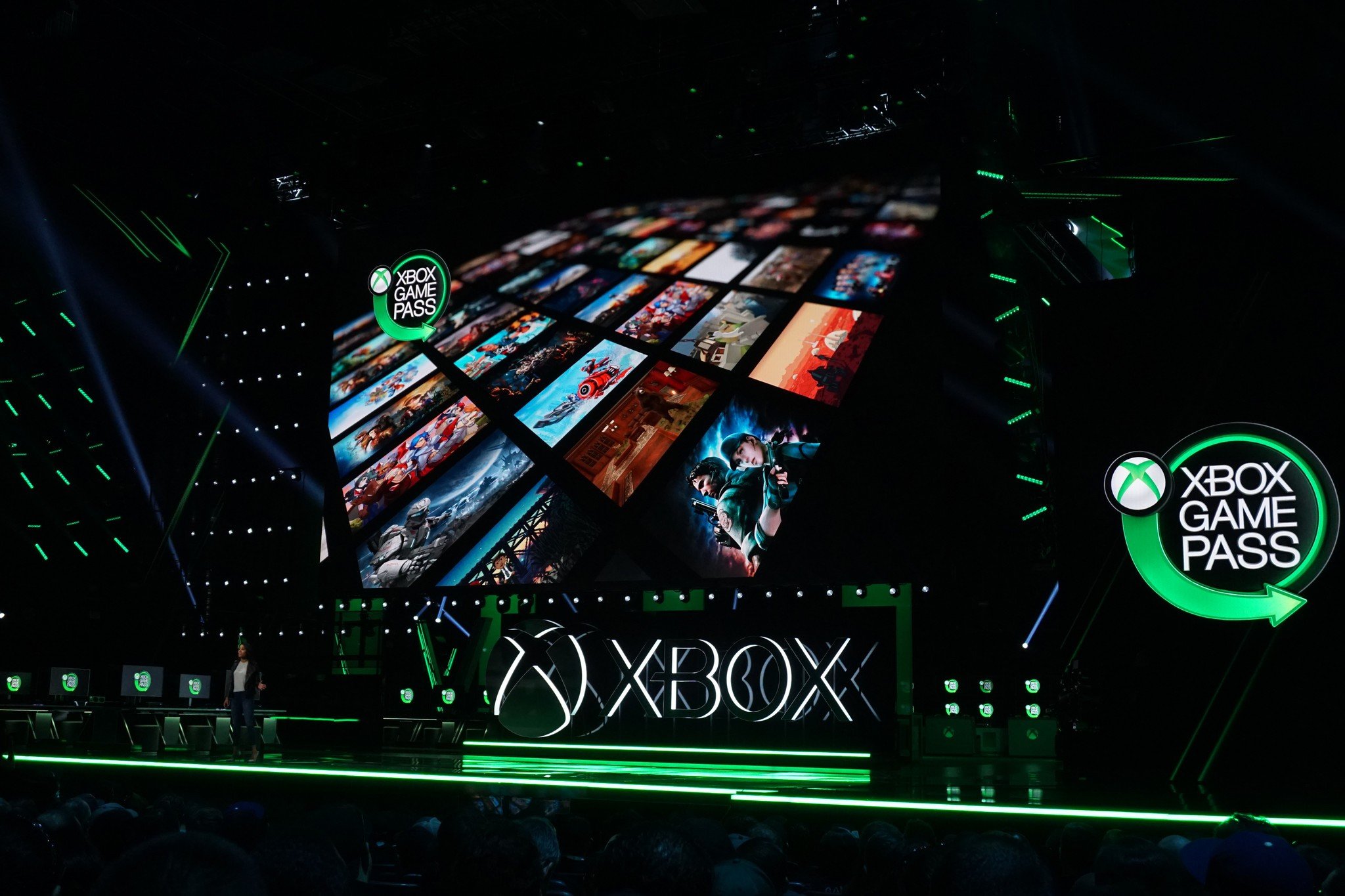
People point to Xbox marketing CVP Aaron Greenberg's comments that Xbox Game Pass "wasn't a big profit play" to spin the business model as weak. Thing is, that's standard practice for any new business on this sort of scale, while it's in a user acquisition mode.
Xbox Game Pass is also beating Spotify and Netflix by creating full purchase incentives.
It's potentially complicated for Spotify, given that it doesn't pay a single lump sum for content generally, instead opting for a royalty-oriented model. Spotify also has no real way to make exclusive content, given the granularity of music in general. Spotify was a reaction to the rampant MP3 piracy of yesteryear, given how easy it is to shift music from one format to another in today's digital age. Ads and subscriptions alone don't seem to be doing the trick for Spotify, which has only seen a few months of profitability out of its entire 15-year life span. As more users come into Spotify, server costs and royalties go up too, which doesn't paint a rosy picture.
Netflix is producing cash, but also has a heap of debt to finance as it relies primarily on funding exclusive content with big budgets. The goal is that one day, Netflix will have so many users and so much income that it flips immediately into full profitability in a big billion-dollar-shaped way. Those shows were expensive to make, but once they're made, they add permanent value to the service. I can watch Netflix's exclusive shows forever, and there's frankly more content in there than I have time to consume. Beyond first-party content, you could argue that Xbox Game Pass feels a lot more curated than some of its competitors.
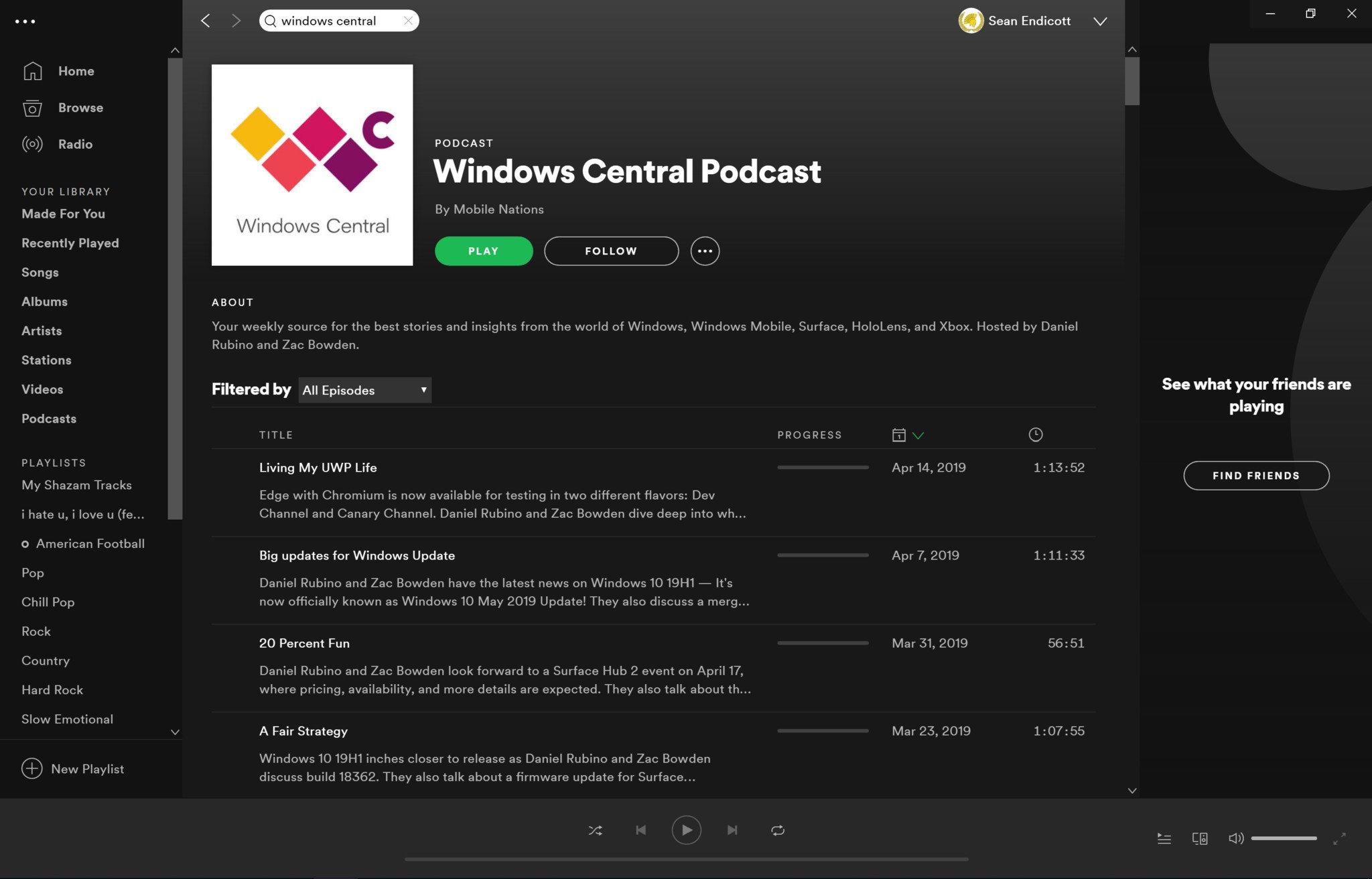
In some ways, the music industry is saturated. The sheer volume of content on Spotify, combined with the way we consume music, doesn't exactly lend itself well to profitability for the artist. I try to buy vinyl records for bands I love, and still, have a vast CD collection despite literally not owning a CD drive in my entire house anymore, but I like so much music that I probably only listen to the same bands a few times a year. In previous years, radio and TV effectively gatekept music, with discoverability hinging on the approval of a handful of media execs. The internet democratized music but, perhaps reduced its sale value in the process. There's simply so much music out there from independent creators on YouTube, Soundcloud, and beyond, that you could argue there's more supply than demand.
Spotify boasts literally millions of songs, whereas Xbox Game Pass features a couple of hundred games. Not only that, but these games rotate out of the service after a few months. The curation ensures that even the smallest indie games hitting the service have a chance to shine and be discovered by users hungry for new content. Xbox Game Pass is also beating Spotify and Netflix by creating full purchase incentives, via Xbox Game Pass' clever "buy to own" discount for titles that are exiting the service.
Xbox Game Pass quite possibly contributes to retail sales
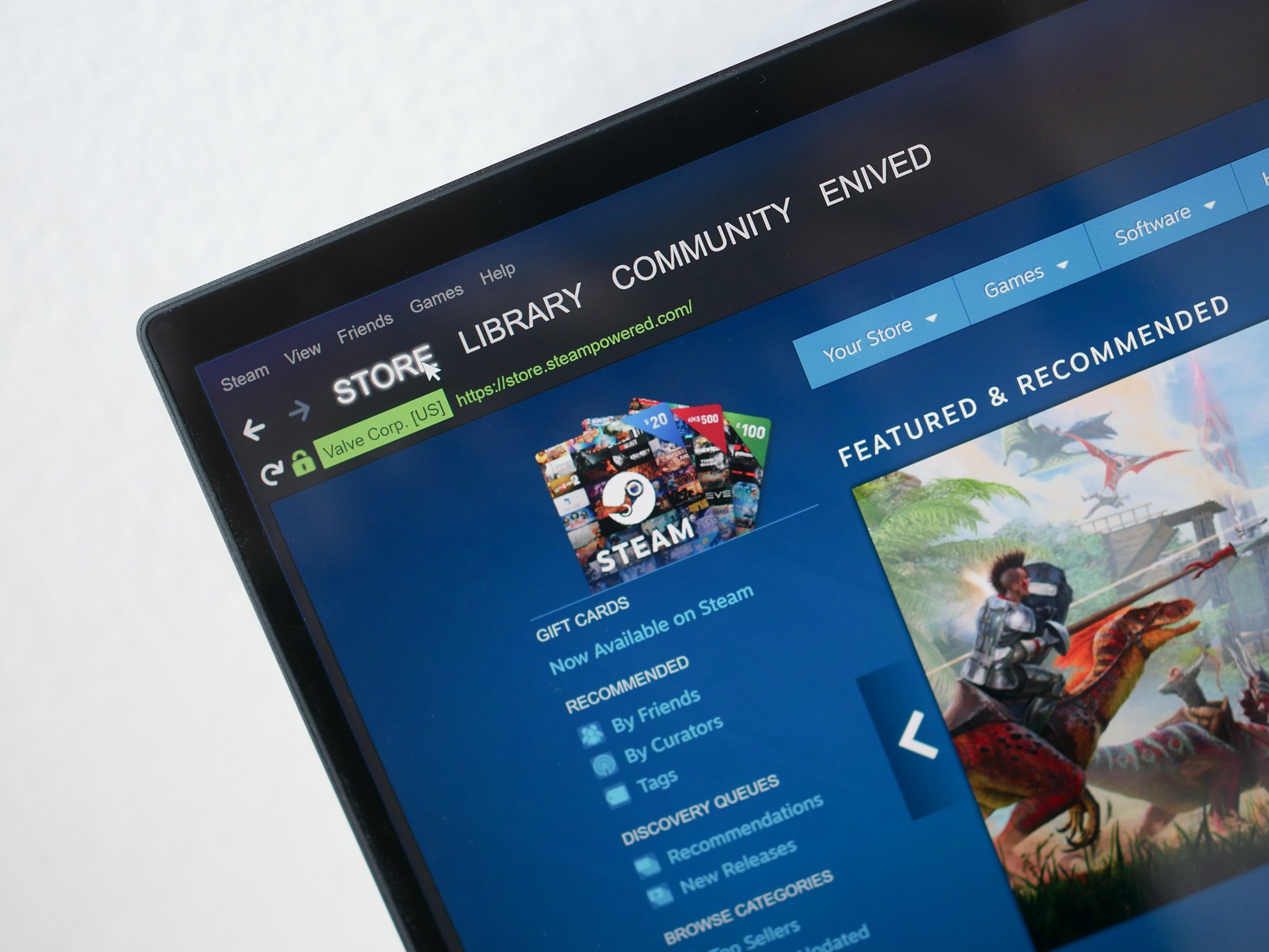
Indeed, unlike Spotify killing CD sales and Netflix and Disney+ killing Bluray sales, there's evidence to suggest Xbox Game Pass is doing the opposite for games. Despite the fact Sea of Thieves, Age of Empires, Forza, Halo, and other games are available on Xbox Game Pass for PC for just $10 a month, all of these games hit Steam at retail, remaining in the top-sellers list for months after launch.
It could be that Xbox Game Pass is creating a "free-to-play-like" virality for games that aren't free to play.
Like Netflix, Microsoft is investing a ton into exclusive first-party content via its partner studios. Still, those games operate on an old-school boxed-copy retail business model too, whereas Netflix was always streaming-first. If recent trends are anything to go by, millions will still line up to buy the next DOOM or Halo, whether they're in Xbox Game Pass or not.
Sea of Thieves is a game that launched with a relatively thin content slate. However, Xbox Game Pass access potentially helped buoy the game while it sailed to a broader feature set, finding a passionate and dedicated audience in the process. The ongoing nature of the game has led to repeated peaks of interest as new content is launched, which no doubt lead to additional subscriptions to Game Pass, and thus, complimentary retail sales as a result. Cross-play multiplayer with Steam means that I can enjoy the game on Game Pass, and potentially entice my friends to play with me by incentivizing them to purchase at retail.
Free-to-play games enjoy this virality and content sharing due in part to their low barrier to entry. It could be that Xbox Game Pass is creating a "free-to-play-like" virality for games that aren't free to play. Outriders too has launched in a pretty rough state, but still managed to top retail sales charts despite a high-profile day-one launch into Xbox Game Pass. Did Xbox Game Pass inclusion help market and boost interest in the game? It's certainly possible.
The comparisons should be retired
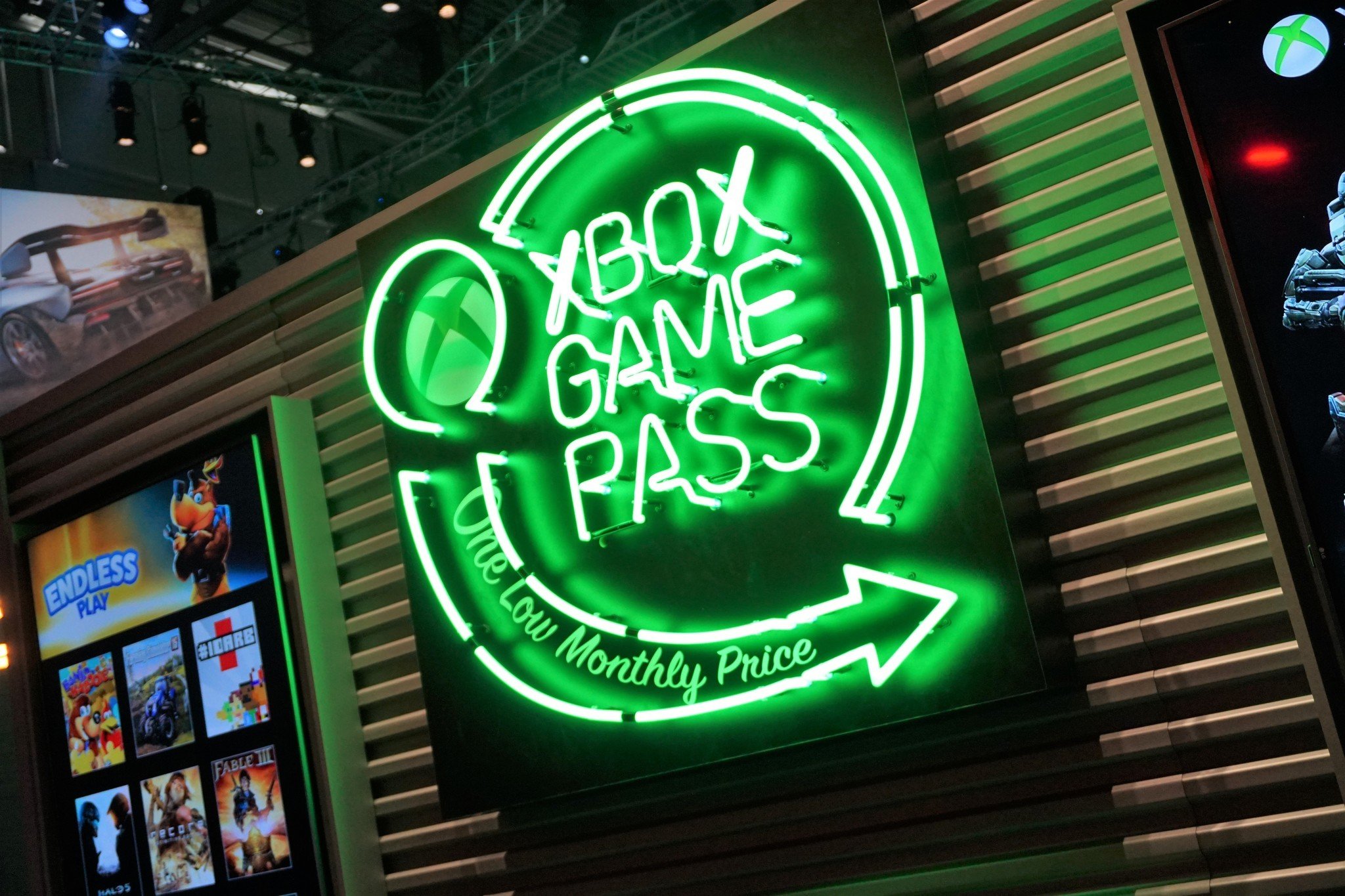
There are various other reasons why the comparisons to Netflix and Spotify don't really stack up. Microsoft has its own cloud provision, whereas Netflix and Spotify have to add additional overheads by partnering with third-party cloud providers. Netflix and Spotify are independent companies, whereas Xbox is backed by a trillion-dollar legacy tech giant, who just landed a $20 billion dollar contract with the Pentagon and spends billions of dollars on acquisitions like it's pocket money.
Could it be that, maybe, just maybe, Xbox Game Pass actually has no downsides?
Xbox Game Pass for sure could have ramifications for the industry that nobody has truly foreseen yet. Consolidation and lack of competition can lead to stagnation and price gouging. You never really want any single company to have all the power, even if Microsoft has shown itself to be fairly responsible in its old age. Even still, every developer and publisher I've spoken to off the record about Xbox Game Pass has only had positive things to say about it. The deals help smaller teams cash flow their development and relieve financial pressure so they can focus on creating games we love.
Xbox Game Pass is helping me discover games that I may not have ever known even existed previously. Xbox Game Pass is also improving access to games for poorer families who perhaps can't shell out $70 dollars (or more in some countries) per game. Through cloud streaming, Xbox Game Pass will also bring games to the broadest gaming audience in history, all on a single codebase.
Of course, it's our duty as members of the gaming community to be skeptical of any major shifts brought about by trillion-dollar corporations. At the very least, though, it's time to acknowledge that Xbox Game Pass stands alone, and is not really comparable to Netflix, Spotify, or any other streaming service that came before it.
I think through years of bad behavior by corporations we've come to expect some sort of "gotcha" moment from things that seem too good to be true. Could it be that, maybe, just maybe, Xbox Game Pass actually has no downsides? Only time will tell.

Jez Corden is the Executive Editor at Windows Central, focusing primarily on all things Xbox and gaming. Jez is known for breaking exclusive news and analysis as relates to the Microsoft ecosystem while being powered by tea. Follow on Twitter (X) and tune in to the XB2 Podcast, all about, you guessed it, Xbox!
